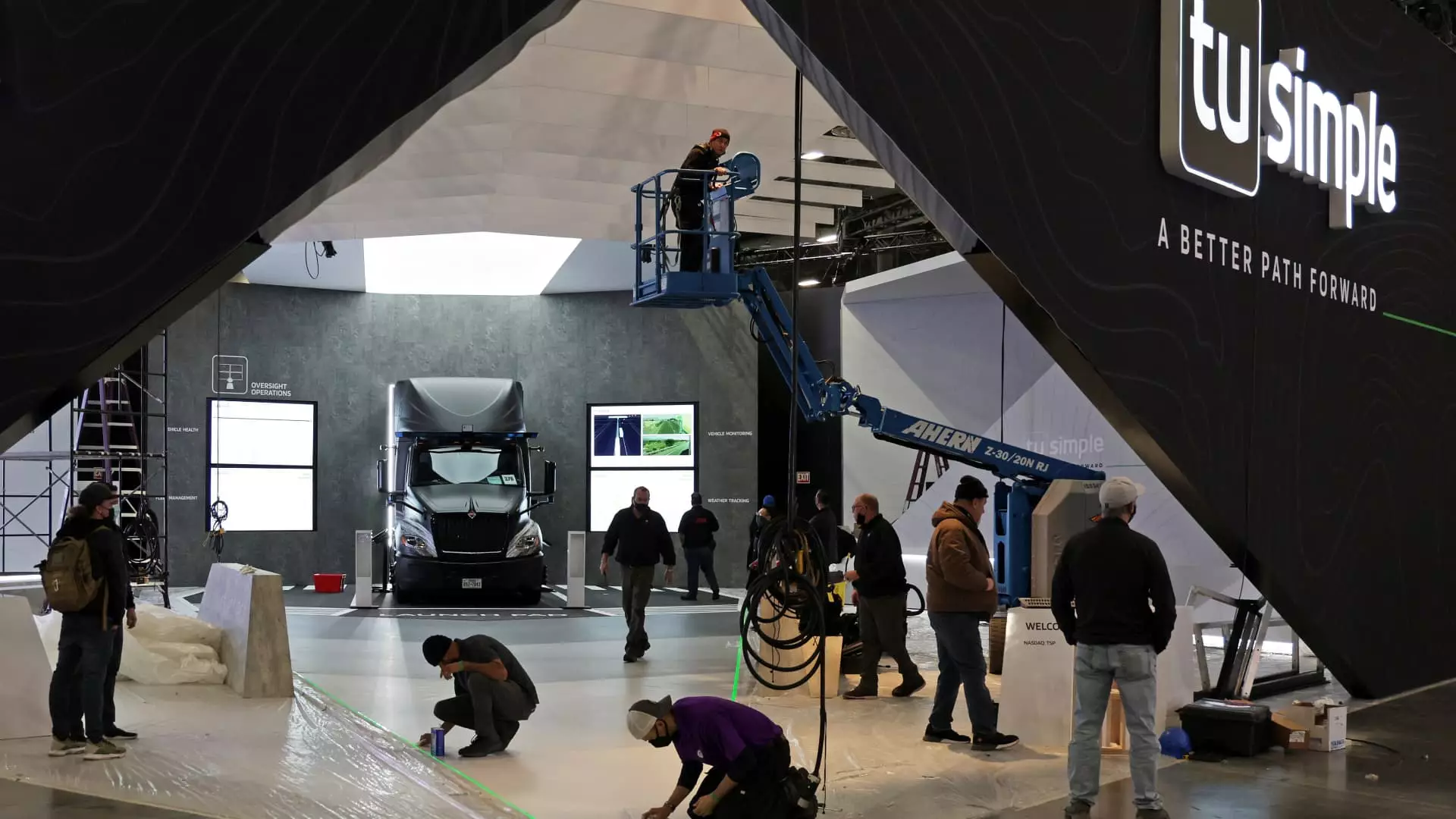In a striking pivot, TuSimple, once a prominent name in autonomous trucking, has rebranded itself as CreateAI, signaling a new focus on the burgeoning fields of video games and animation. This transition arrives at a tumultuous time, wherein the self-driving industry is undergoing a drastic shake-up, highlighted by General Motors’ recent decision to discontinue its Cruise robotaxi operations. As TuSimple embarks on this new path, it reflects broader trends affecting self-driving startups, with many firms unable to survive the transitional phase.
The company’s previous dual presence in the U.S. and Chinese markets has brought a myriad of challenges, including intense scrutiny over vehicle safety and a significant $189 million settlement pertaining to a securities fraud lawsuit. The delisting from Nasdaq further underscored the stigma surrounding the emerging self-driving sector. However, the rebranding to CreateAI not only symbolizes a fresh start but also showcases the company’s ambition to leverage its technological legacy in a more creative and commercially viable direction.
Cheng Lu, who returned as CEO after a brief departure, harbors an optimistic outlook towards profitability, projecting that CreateAI could break even by 2026. This prediction aligns with the anticipated launch of a video game inspired by Jin Yong’s revered martial arts novels. Cheng asserts that the game could generate “several hundred million” dollars in revenue in 2027, a significant leap toward financial recovery. Before the name change, the company reported a loss of $500,000 during the first three quarters of 2023, whilst channeling $164.4 million into research and development—a substantial investment despite ongoing financial volatility.
Central to Cheng’s vision is a noteworthy collaboration with Mo Chen, co-founder of TuSimple, who has maintained a long-standing relationship with the Jin Yong family. Chen’s initiative to create animated adaptations based on these iconic narratives began in 2021 and has since evolved into a broader suite of generative AI applications aimed at enhancing the gaming and animation sectors.
Further cementing its new identity, CreateAI introduced Ruyi, its first major open-source AI model tailored for visual creativity. Utilizing the Hugging Face platform, Ruyi represents CreateAI’s venture into generative AI, akin to technologies that underpin popular tools like OpenAI’s ChatGPT. Cheng’s assertion that the company possesses robust AI capabilities demonstrates a strategic effort to pivot from traditional automotive applications to more creative, digital realms.
Acknowledging shareholder support, Cheng highlighted the transformation as a widely endorsed shift, suggesting a collective belief in the company’s new direction. Reflecting commitment to growth, CreateAI plans to expand its workforce to approximately 500 employees in the forthcoming year, a significant increase from its current 300-person team.
As part of its revitalization strategy, CreateAI previously announced a collaboration with Shanghai Three Body Animation, aimed at developing both an animated feature film and a video game based on the acclaimed “The Three-Body Problem” science fiction series. This project underscores the company’s commitment to intertwining entertainment with cutting-edge technology, positioning itself within a competitive market that shows no sign of slowing down.
Moreover, Cheng disclosed ambitions to drastically reduce costs associated with high-end, AAA game production by an impressive 70% over the next five to six years. Such claims, if realized, could not only disrupt the gaming industry but also enhance CreateAI’s stature as a pivotal player in a marketplace hungry for innovation.
Despite navigating the complexities introduced by U.S. restrictions on Chinese technology companies, Cheng indicated that the company utilized diverse cloud computing providers, thereby mitigating potential setbacks. This adaptability could prove critical as the tech landscape evolves further under geopolitical pressures.
As CreateAI embarks on this ambitious venture into the realms of gaming and animation, it symbolizes more than just a name change—it embodies resilience in the face of adversity. By harnessing its existing technological expertise and nurturing innovative partnerships, CreateAI not only hopes to redefine its identity but also to carve out a significant space in the competitive world of entertainment technology. While the road ahead remains fraught with challenges, the company’s renewed focus and ambition augur well for its future.



Leave a Reply